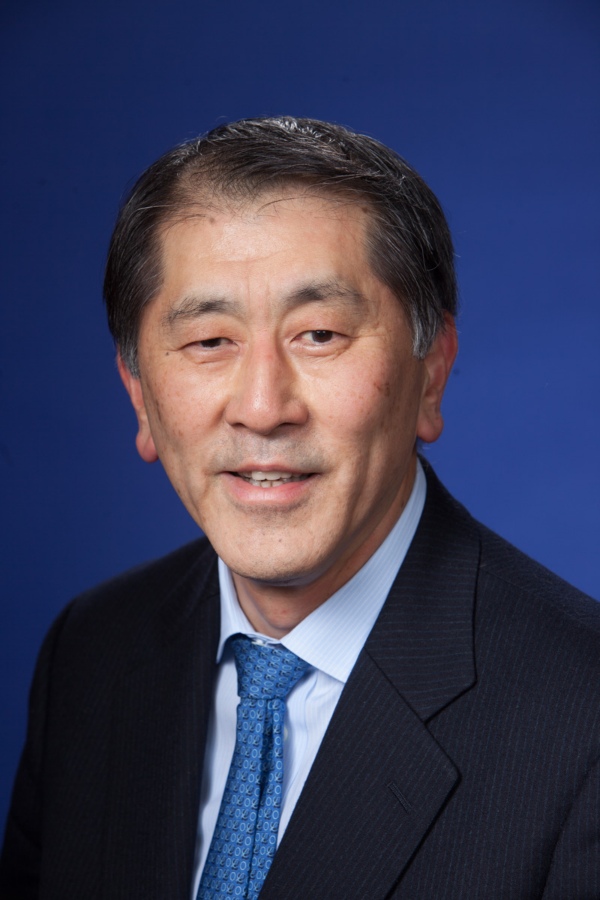2014
Aiji Tanaka
Waseda University, Japan
(2014–2016)
Aiji Tanaka is a Japanese political scientist who has been serving as President of Waseda University (Japan) since November 2018. He is renowned for his contributions to political science, particularly in voting behavior, public opinion, and Japanese politics.
He earned his B.A. in political science from Waseda University in March 1975, followed by an M.A. and Ph.D. in political science from Ohio State University in January 1977 and December 1985. Prof. Tanaka’s academic career spans various prestigious institutions, including Dohto University (April 1986–March 1989), Toyo Eiwa Women’s University (April 1989–March 1994), and Aoyama Gakuin University (April 1994–March 1998), before joining Waseda University in April 1998. At Waseda, he served in multiple leadership roles, such as Dean of Academic Affairs (2006–2010), Senior Executive Director for Academic Affairs, which is equivalent to Vice Provost (2010–2014), and Director of the Global Education Center (2014–2018), where he advanced internationalization initiatives.
Prof. Tanaka authored or co-authored 13 books and numerous scholarly articles, primarily in Japanese, with a focus on voting behavior, public opinion, and political institutions. His most recent books include Jukugi no Koyo, Jukuryo no Koka (Usefulness of Deliberation with Other People and Effects of Deliberation Within Oneself, edited and co-authored, 2018); Nenkin Kaikaku no Seiji Keizaigaku (Political Economy of Pension Reform, co-authored, Toyo Keizai Shinpo, 2005); Seijigaku (Political Science: Theory and Scope, co-authored, 2003); and Seiji Katei Ron (co-authored, Yuhikaku, 2000).
His recent scholarly articles in English include The Impact of the Tohoku Earthquake and Tsunami on Social Capital in Japan: Trust before and after the Disaster (International Political Science Review, 2015), and Party Politics, Elections and (Mis-)trust in Japan (Japan Forum, 2016). Earlier works include Patterns of Party Polarization in East Asia (Journal of East Asian Studies, 2007); Change in the Spatial Dimensions of Party Conflict: The Case of Japan in the 1990s (Political Behavior, 2001); and World Opinion in the Gulf Crisis: An Empirical Investigation (Journal of Conflict Resolution, 1993). He also co-authored the chapter Religion and Politics in Japan (with Maria A. Toyoda) in Religion and Politics in Comparative Perspective: The One, The Few, and The Many (Cambridge University Press, 2002, pp. 267–286).
Prof. Tanaka presented his research at numerous international conferences, including several IPSA World Congresses and the American Political Science Association’s Annual Meetings. His work examined party system evolution, political trust, and electoral behavior in Japan and East Asia. A respected voice in both academic and public debates, he has been featured in Japanese and international media, including The New York Times, The Economist, and NHK (Japanese public broadcaster).
In addition to his academic work, Prof. Tanaka contributed to Japanese higher education and research policy. He served as a committee member for the Japan Society for the Promotion of Science (JSPS) and held expert advisory roles in several divisions of Japan’s Ministry of Education, Culture, Sports, Science and Technology (MEXT), including those focused on university education, graduate-level studies, and secondary education reform. Since 2021, he has also served as President of the Japan Association of Private Universities and Colleges (JAPUC) and the Federation of Japanese Private Colleges and Universities Associations, playing a leading role in shaping national higher education policy.
Prof. Tanaka served as a member of the IPSA Executive Committee from 2009 to 2012, as First Vice-President from 2012 to 2014, and as IPSA President from 2014 to 2016. He also played a major role in relocating the 2016 IPSA World Congress of Political Science from Istanbul, Türkiye, to Poznań, Poland. Between October 2015 and February 2016, a series of five terrorist attacks occurred in Istanbul and Ankara, leading to the relocation of the Congress on 24 February 2016. Prof. Tanaka anticipated the escalating security risks and led the initiative to relocate the Congress. Under Prof. Tanaka’s leadership, the 2016 IPSA World Congress in Poznań was a resounding success. The event featured 633 panels and 2,271 paper presentations, along with five plenary sessions, four award ceremonies, and a full program of cultural and social activities.












